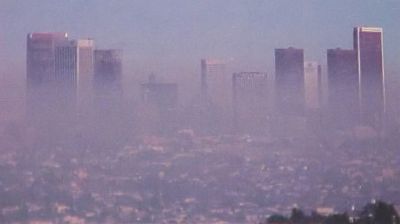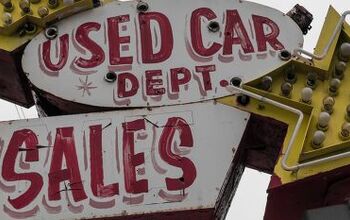Energy Bill May Come A Cropper in CA
Props to The Car Connection (TCC) for pointing out that the Energy Bill President Bush will sign later today won't resolve the key issue bedeviling U.S. automakers: who controls fuel economy standards? Although TCC misses the fact (as did we) that the 35mpg by 2020 target is an industry-wide standard, they correctly identify California's air quality ambitions as a major threat to the Energy Bill's mpg mandate. Apparently, a "senior GM executive" told TCC that the California initiative– classifying CO2 as a greenhouse gas they can limit– amounts to a 43-mile per gallon fuel economy standard. And, ladies and gentlemen, THAT standard is REAL; although there are generous E85 credits it contains no industry average targets or "attribute based calculations" and phases-in four years earlier than the federal target. The GM exec [supposedly] told TCC that his employer can "probably offset most of the impact from the new CAFE legislation by selling '300,000 or 400,000 Volts' and some hybrid SUVs, there is no way to meet the California standards without a dramatic downsizing of vehicles that would reach across the entire vehicle lines." It's too bad TCC feels obliged to end their insight with a cheer leading quote about the Energy Bill. "It… will reduce its global warming pollution by the equivalent of taking 28 million cars off the road," Phyllis Cuttino, director of the Pew Charitable Trusts Campaign for Fuel Efficiency asserted. "There's nothing underwhelming about that," she said.
More by Robert Farago

































Comments
Join the conversation
It could possibly mean Ford or Chrysler, perhaps GM pull out of the California market. Their market share is dwindling here anyway, and in the next five years plus will continue to dwindle no doubt. Also, by the time 2016 rolls around it will interesting to see how many Californians will be able to afford a new car. The state's economy is in horrible condition (facing a $14 billion dollar deficit) and the progstication is it is not turning around anytime soon. The new regulations on cars could add $4K to $6K per vehicle. Remember Jerry Brown (affectionately known as Moonbeam for when he was Govenor of the state) is now the Attorney General of the California, he has made it his highest priority to push climate change regulations (never mind some cities in this state are being overrun by gangs and undocumented aliens). Perhaps this is why GM and Ford are pushing to get footholds outside the U.S.? Why would they want to put up with the California nonsense?
"..... 2020 camcord .... " There is no such thing as a Camcord and the term is an annoying affectation. We don't hear about Malibusions or Impauruses. The Camry and Accord are very different cars which have in common only the fact that they both come from Japanese parent companies and are targeted at the volume US midrange sedan market.
California isn't showing leadership on this issue. California doesn't need federal law or regulation (a waiver from the EPA or stringent CAFE standards); it can do all of the regulation of CO2 by enhancing existing regulation on market participants (consumers and suppliers) in California. In fact, all of the States can implement these changes thereby taking leadership for greenhouse gas emissions away from the federal government. Some ideas: 1. Increasing the price of fuel. A price increase of 100% would reduce demand for fuel by about 60% according to a study I read. Implementing this 100% increase in fuel would require California to increase the excise tax on fuel from its current USD0.18/gal (that's right: 18 cents per gallon) to about USD4.00/gal. 2. Increasing the cost of commuting by implementing congestion charges. One way is how London UK does it: If you enter a sector of the city you pay a daily flat fee. Other ways include tolling intersections of interstate, federal, and state shielded highways or tolling distance over road. This doesn't mean building toll plazas, either; but by using license plate recognition (Toronto Ontario's Highway 407 ETR) and transponders to assess the tolls. 3. Taxing car ownership based on CO2 footprint. Every year when California's residents renew their plates they are taxed for its CO2 footprint by vehicle type, mileage driven, and hours the engine operated. In this scheme California can assist the poor or privileged by refunding some or all of the fees and taxes through their income tax system. The likelihood that California has the political will to implement these local changes for a local problem: darn near zero.
Autoblog is reporting that the new law supercedes a states ability to legislate this and that manufacturers now only have to follow the Federal law instead of individual states. Is Autoblog wrong or did I miss read something (as in the Co2 thing is something else they can legislate)?